
An extended improvisation between spinet player Christoph Schiller and Boston-based composer/violinist Morgan Evans-Weiler, recorded in Schiller's workshop in Basel during Evans-Weiler's tour of Europe, a slowly moving exploration of pitch, timbre and texture executed with intensive concentration and utterly impressive control.
Out of Stock
Quantity in Basket: None
Log In to use our Wish List
Shipping Weight: 3.00 units
Sample The Album:
Christoph Schiller-spinet
Morgan Evans-Weiler-violin
Click an artist name above to see in-stock items for that artist.
Label: Another Timbre
Catalog ID: at112
Squidco Product Code: 24080
Format: CD
Condition: New
Released: 2017
Country: UK
Packaging: Cardboard Gatefold
Recorded at Christoph's atelier in Basel, Switzerland, on October 26th, 2016, by the artists.
"An extended improvisation recorded in Christoph Schiller's workshop in Basel during Boston-based composer/violinist Morgan Evans-Weiler's tour of Europe. Excellent and intelligent music."-Another Timbre
Interview with Morgan Evans-Weiler
Although you have recently released a couple of strong discs, yours is a relatively new name to me. Could you tell us a bit about your background, and how you came to experimental music?
I grew up playing violin, guitar and bass guitar, but was not too serious about it in my youth. It wasn't until high school that I started realizing that I was going to pursue music seriously. Throughout high school I spent most of my time being involved in the punk scene - violin was the thing I did at school. The DIY ethos of punk is something that has stuck with me from that time - it seems really relevant to the experimental community. Then I went to study music at university and focused on performance and music composition. It was a state school in Michigan - very traditional - I learned very little about experimental music, but got a decent traditional music education. The only improvised music I heard during that time was very standard (what I thought was boring) jazz, so I just assumed I didn't like jazz. I mostly composed awful pieces, practiced violin all of the time and wrote songs in my spare time. My composition professors introduced me to some interesting things - I got into Reich's tape pieces and some of Terry Riley's work. Maybe heard a couple of Cage and Feldman's pieces. No exposure to Alvin Lucier or Robert Ashley or anything like that. Ravel and Stravinsky were still considered contemporary there. The gravity of lame music in music school is very strong. It is hard to escape the status quo. I just remember going to all these concerts of contemporary music and hating it all. I knew there was great music out there - I just didn't know what it was. I suppose I had it in my brain that I was going to be a performer of contemporary music - but I also kind of knew that I didn't have the skills for that - I'm not very technically proficient and I have bad performance anxiety. Mostly, I didn't know what I liked and I didn't know what I wanted to do - but I suppose I did know that both performance and composition were important...
Everything changed when I moved to Boston. I came here to continue studying music (because I didn't know what else to do), but I finally had enough when I played in a contemporary music ensemble and we played "Appalachian Spring". Concurrently, I started going to all sorts of experimental and improvised music shows and it was clear where the real music was - not in the schools. I dropped out shortly after that. Back in 2008 there was a very active experimental music scene in Boston. Howard Stelzer, Vic Rawlings, Greg Kelley and a lot of the lowercase people were still active and living here in Boston and there were a lot of great things to see. I pretty much spent the next few years playing only improvised music - just trying to figure out how to work with materials. The people in Boston became really important to my development. Just from being around them and hearing them play, I learned a great deal - through that, I was introduced to all the experimental music that I hold dear now. These were very formative years - 2008 - 2013. It was just several years of reducing my sonic concerns to what was essential.
I had a professor introduce me to Deleuze and that opened up a huge world of philosophy and critical theory which has been just as important to my artistic development as any music - that professor also got me hooked on concepts of map making and experimental cartography that really appealed to me. I've worked with a great number of wonderful people here: James Coleman, Vic Rawlings, Dave Gross, Jed Speare - these people probably don't realize how much they have taught me. Eventually, I was introduced to Wandelweiser and that was kind of it for me - it solidified my sonic concerns and philosophical interests all into one art. Once I started composing again in 2014 I had a completely new focus. It hasn't been until these last 3 or so years that I have really found what it is I want to do - I'm a late bloomer I guess, this shit takes time.
How did the 'spinet and violin' project with Christoph Schiller come about, and what attracted you about Christoph's playing?
I was planning a tour through Europe last year and I didn't know that many people over there. I just cold emailed Christoph because I had his 'Variations' disc and it remains my favorite thing on Another Timbre. I suppose a lot of the attraction was his work with spinet. He has such a particular approach to this instrument and a way of developing on an economy of sound. I suppose I imagined my violin sound with his spinet sound and that was very exciting to me. I was lucky enough that he seemed interested and responded to this random message from some American dude. We then planned to record for a couple of days at his studio in Basel - and we had a very nice concert before I went on my way.
Is the music on the CD completely improvised, or did you discuss or prepare what you were going to do at all?
The music was completely improvised. It was clear from the second that we started playing what direction it was going to go. I think we have both become increasingly interested in pitch and so the focus was very much on permutations of pitch sets and working through these sets over time. The influence of Magnus Granberg's work was very clear with both of us also. Christoph had worked with Magnus on the 'How Deep is the Ocean...' CD and I had recently played that piece with Magnus while in Stockholm. I had also been working through these concepts of pitch, melody and harmony in my own compositions and in various improvised music settings for quite a while previously.
We never discussed what pitches to use or anything - Christoph has an amazing ear and I just felt like he could intuit what kind of pitch construct I was imagining and we would work it out for long durations. (At least this is how I experienced it - Christoph might have had a total different experience!) It was a very organic process - we just spent a couple days playing and recording and it was wonderful.
What is the balance between composition and improvisation in your work now?
After spending all those years improvising, I now have found much more focus in my composition work. I still improvise a bit, but there are so few people in Boston with a similar aesthetic for me to work with, I mostly compose and use violin as a tool for composition.
Most the composition work I have been doing involves a great deal of freedom and improvisation from the players. I have only written one or two pieces in the last 4 years that put notes/sounds/events in a particular order. I like to imagine pitch sets, structures, scenarios and environments for performers to be in. Within those constructs, the players really have complete freedom on how to navigate the scenario and improvise with the material. Recently, I use graphic scores a lot to help create the environment and allow the players to navigate and use the material as they see fit.
With violin, I have been steadily working on new solo pieces. These pieces always involve a great deal of improvising with a material until I find the points that are most interesting. Eventually, I'll arrive at a set of material and an approximate structure that I like. The pieces are never exact - each performance has a lot of variation - but in many ways I know exactly what I'm going to do. I don't really bother creating scores for these pieces, because my violin work is so specific to me and my process that I can't ever imagine anybody else playing them. So the improvisation is now more in the composing process - the performance is improvised but its been flushed out pretty intensely.
A huge part of me improvising in performance less now is just not having enough people who want to explore similar territory. I have found that folks over here stateside aren't interested in working in this kind of way. That is why it was so great working with Christoph - we had a shared concept and a newfound love for working with pitch in a particular way.
Could you say a bit more about your 'newfound love for working with pitch'? It's something that has come late to me too, after years of being more interested in timbre, and I don't really understand why. Have you any idea where it came from in your case?
A great deal of my interest with pitch now probably comes from all those years of improvisation and thinking about noise, timbre and texture. After working with that material for a while - I started to find it less interesting. It got to be that in an improvisational context the most interesting thing I could do was to contrast all of the noise and play straight pitches because everybody was doing all this extended technique noise stuff. It then became clear that working with pitch was what appealed to me the most. The thing that now seems more relevant to experimental music is to use traditional material like pitch but apply new concepts to it. I think working with texture for so long led me to the realization that pitch and pitch combinations actually create all the timbre and texture that I need in my work. Certainly, I still enjoy exploring texture, but now the texture is all a way to explore the shading and expression of the pitch content. Further, with an increased interest in microtonality and overtone concepts, I've found that the infinite shadings of tone combination offers a much more fruitful realm of discovery for me.
A part of my interest in pitch - and what I see as a large part of my interest in Christoph and Magnus' work - comes from my interest in baroque music and this idea of counterpoint. The way that voices engage with each other in an improvisational or open space is really fascinating to me. The interdependence that counterpoint creates is, for me, a really important compositional (and social) question to consider. There is a huge level of potential in baroque music with a very limited language use. With open scores, microtonality and improvisation, we can really begin to explore that infinite potential of pitch and contingency.
Further, with a lot of the texture and timbre music, gestures are very sustained and we experience these swathes of sound over long periods. But with counterpoint, it opens up a huge amount of space (often for silence) for the voices to create a higher level of interaction and interlocking. That interlocking of voices is for me the most satisfying aspect of working with Christoph. I'm always thinking of more open concepts for playing experiences and thinking about playing as if it were counterpoint is very helpful for me. Thus, each agent in the experience has the potential to exist as an independent melodic voice, but also as a harmonic relation to the other players.
"It describes itself as "an extended improvisation" but I don't believe it. A few years back Another Timbre put out a solo album by Christoph Schiller titled Variations - a strange hybrid of improvisation and composition. Schiller worked inside an amplified spinet and piano with various objects to compose a canon out of improvisations of predetermined length. His working methods were inspired, producing evocative sounds that only occasionally betrayed their origins.
Someone could carelessly say that improvisation is about spontaneity, but that only goes some way towards a satisfying musical experience. When away from the club, the theatre, the sense of community, the bravado, the booze and only the sound remains. As Schiller said, "A recorded improvisation is as fixed (or even more fixed) as a written piece." Improvisation is about heightened senses of judgement, knowing when and how to act, even if only on a subconscious level.
This new duet by Schiller and violinist Morgan Evans-Weiler, titled simply spinet and violin, exercises such a fine judgement over such a long time that it's difficult to believe that, as Evans-Weiler confirms in the accompanying interview that the music was completely improvised, or that they haven't been playing together for years:
It was clear from the second that we started playing what direction it was going to go. I think we have both become increasingly interested in pitch and so the focus was very much on permutations of pitch sets and working through these sets over time.
The focus on pitch yields a fascinating study in timbre and texture. Carefully choosing when to deploy each new note creates a beautifully paced slow arc of sound that builds up ominously before dying away to almost complete silence halfway through. Strangely, this stillness and subsequent stirring into activity again feels like a natural progression than a break or a structural argument. The shifts in dynamics throughout the piece are all the more striking and effective for being confined to a relatively narrow range.
Both musicians hover in a state halfway between definite pitch of 'proper' playing and the indeterminate sound of 'extended' techniques. The piece begins with Schiller plucking muted spinet strings against Evans-Weiler's frail violin drones. Any tendency to pursue a particular gesture or sound gets reined in by an emphasis on pitch, yet the pitch itself remains a nebulous ideal which may be approached but never possessed. This ambiguous haze persists throughout, like a familiar image that preys on memory but never quite resolves into recognisable focus. Sustained double-stops float microtonally, the strings from both instruments rasp and buzz, a rare plucked note dropped like a pebble into a pond. The spinet rattles and echoes - at times it seems like there are electronics involved, with lower pitched sounds welling up in the background. It's all hard to tell. I haven't heard many pieces this year composed as well as this improvisation."-Ben Harper, Boring Lika a Drill
Artist Biographies
• Show Bio for Christoph Schiller "Christoph Schiller was born in 1963 in Stuttgart. He studied fine arts at the Kunstakademie Stuttgart and HfBK Hamburg. He later studied piano with Daniel Cholette and music theory in Basel. He has been playing concerts of improvised music on piano since 1987. In recent years the piano has been abandoned in favour of the lighter spinet, for which he has developed specific playing techniques which are influenced by inside piano techniques. Besides keyboard instruments his work with the voice has become increasingly important. He lives in Weil am Rhein and Basel." ^ Hide Bio for Christoph Schiller • Show Bio for Morgan Evans-Weiler "Morgan Evans-Weiler, violinist, composer, improviser and teacher, is currently living in the Boston area working as a freelance musician and teacher. He completed his bachelor's degree at Western Michigan University with a double degree in Music Composition and Performance studying with Renata Knific, Richard Adams, and Curtis-Curtis Smith. He studied violin further with Laura Bossert and jazz with Peter Cassino in Cambridge, Massachusetts. Currently he studies composition, theory, musicology, history and just about everything else with Peter Evans. While in Michigan, he co-founded, performed with, and composed for the Nuevo tango band Barefoot Tango and the songwriting collective Blackwater Valley Songs. He also performed with the Traverse City and Battle Creek Symphony Orchestras, and the annual New Music Project. While in the Boston area, he has performed with the Modern American Music String Quartet, Longitude and various jazz and free-jazz groups. He has played in and composed music for performances at The Regattabar, Lilypad, and Pickman Hall (Longy School of Music) in Cambridge, as well as numerous halls and art spaces throughout Michigan. Recently, he performed a full concert of music at Outpost 186 in Cambridge, Massachusetts. The concert included performances of several of Morgan's new works as well as performances of the works of Ruth Crawford-Seeger, Steve Reich and Ornette Coleman. He continues to compose and perform in the Boston area." ^ Hide Bio for Morgan Evans-Weiler
3/31/2025
Have a better biography or biography source? Please Contact Us so that we can update this biography.
3/31/2025
Have a better biography or biography source? Please Contact Us so that we can update this biography.
Track Listing:
1 Spinet & Violin 54:12
Avant-Garde
Stringed Instruments
Piano & Keyboards
Improvised Music
Duo Recordings
New in Compositional Music
Search for other titles on the label:
Another Timbre.


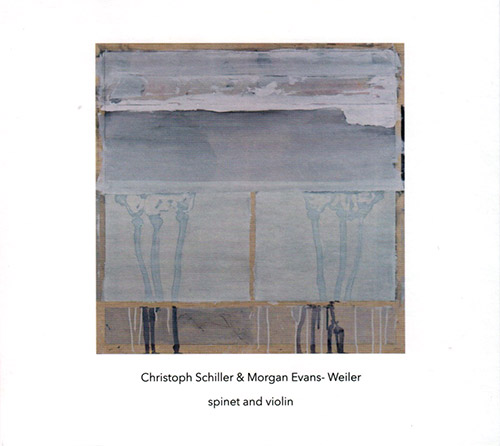
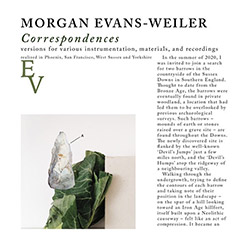
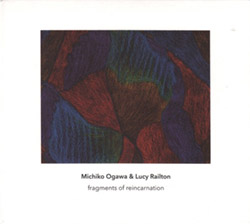
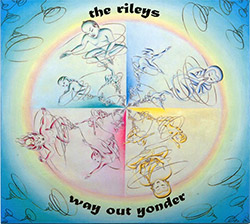
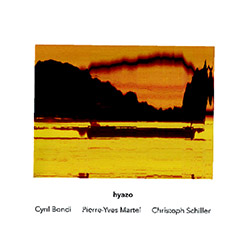
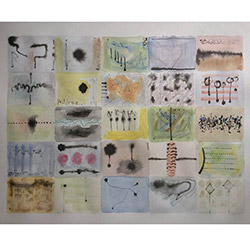

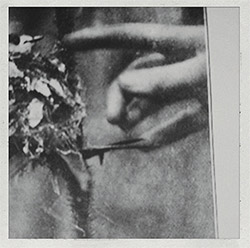



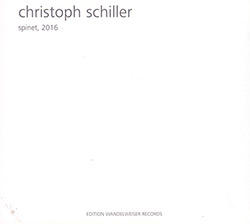
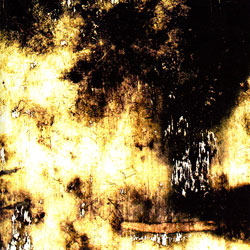
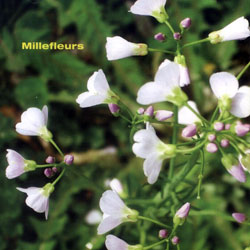
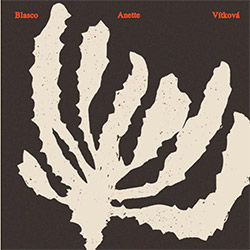
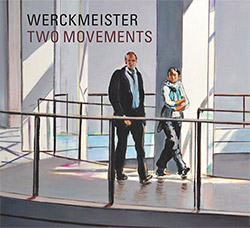
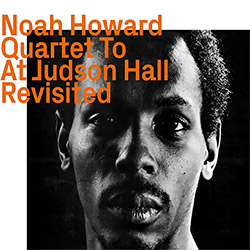
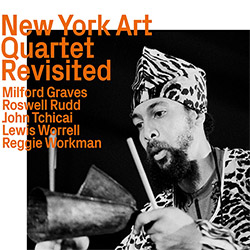
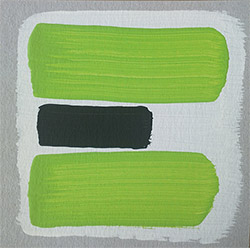
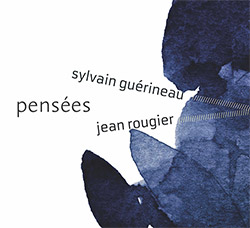
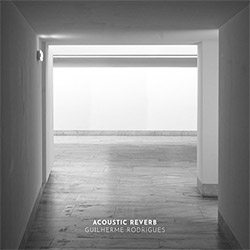


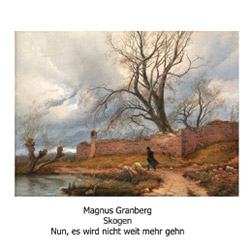




![Rodrigues, Ernesto / Nuno Torres / Guilherme Rodrigues: Whispers In The Moonlight - In Seven Movements [2CDs]](https://www.teuthida.com/productImages/misc4/35765.jpg)



![Cocks, Laura: FATHM [VINYL]](https://www.teuthida.com/productImages/misc4/36055.jpg)










![Ackerley / Prymek / Turner: All Hope With Sleeping Minds [CASSETTE]](https://www.teuthida.com/productImages/misc4/35950.jpg)
![Myers, David Lee : Tin Drop Tear [BOOK w/ DOWNLOAD]](https://www.teuthida.com/productImages/misc4/36030.jpg)



![Schindler, Udo / Sandy Ewen / Damon Smith: Munich Sound Studies Vols. 4, 5 & 6 [3 CDs]](https://www.teuthida.com/productImages/misc4/35966.jpg)






![Turbulence Orchestra & Sub-Units: Smear Out the Difficulties (Double Live) [2 CDs]](https://www.teuthida.com/productImages/misc4/36048.jpg)
![Perelman, Ivo / Tyshawn Sorey: Paralell Aesthetics [2 CDs]](https://www.teuthida.com/productImages/misc4/35871.jpg)


![Sjostrom, Harri: SoundScapes #4 Festival Berlin 2023 [3 CDs]](https://www.teuthida.com/productImages/misc4/35874.jpg)



![Glenn, Jordan: Flustered [CASSETTE]](https://www.teuthida.com/productImages/misc4/35948.jpg)


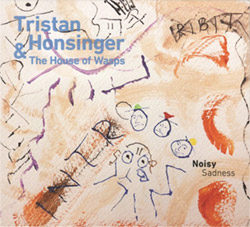
![Lindorff-Ellery, Evan: Church Recordings from Monhegan [CASSETTE]](https://www.teuthida.com/productImages/misc4/35949.jpg)
![Schindler, Udo / Werner Dafeldecker / Gunnar Geisse: Travelling Sound Images - Cognitive Transfers [Trio]](https://www.teuthida.com/productImages/misc4/35767.jpg)

![Egberth, Dennis: The Dennis Egberth Dynasty [VINYL]](https://www.teuthida.com/productImages/misc4/35549.jpg)


![Schindler, Udo / Rieko Okuda / Eric Zwang Eriksson: Disturbed Terrains [2 CDs]](https://www.teuthida.com/productImages/misc4/35330.jpg)






![Olencki, Weston : Pearls Ground Down To Powder [VINYL]](https://www.teuthida.com/productImages/misc4/35956.jpg)
![Myers, David Lee: Oculus [2CDs]](https://www.teuthida.com/productImages/misc4/35857.jpg)


![dustsceawung: dustsceawung [CASSETTE w/ Download]](https://www.teuthida.com/productImages/misc4/35753.jpg)




![Halls of the Machine: Atmospheres For Lovers And Sleepers [CASSETTE w/ DOWNLOAD]](https://www.teuthida.com/productImages/misc4/35806.jpg)



![AHC (Alexander Cooper): Lase [2 CDs]](https://www.teuthida.com/productImages/misc4/35754.jpg)



![Fagaschinski, Kai / Yan Jun : Graveyard Processions [VINYL w/ DOWNLOAD]](https://www.teuthida.com/productImages/misc4/35474.jpg)
![Brant, Cody / Carl Kruger: Smoke Detail [CASSETTE w/ DOWNLOAD]](https://www.teuthida.com/productImages/misc4/35551.jpg)








![Zorn, John / JACK Quartet: The Complete String Quartets [2 CDs]](https://www.teuthida.com/productImages/misc4/35609.jpg)

![Lonsdale, Eden: Dawnings [2 CDs]](https://www.teuthida.com/productImages/misc4/35480.jpg)







![Sanna, Claudio: Compositori Sardi Contemporanei II [2 CDs]](https://www.teuthida.com/productImages/misc4/35317.jpg)







![Zurria, Manuel: Fame di Vento [3 CDs]](https://www.teuthida.com/productImages/misc4/35167.jpg)

![Granberg, Magnus / Nattens Inbrott / Skogen: Holde Traume, Kehret Wieder! [2 CDs]](https://www.teuthida.com/productImages/misc4/35038.jpg)

![Electric Bird Noise / Derek Roddy: 8-10-22 [CD EP]](https://www.teuthida.com/productImages/misc4/35970.jpg)








![Elephant9 : Mythical River [VINYL]](https://www.teuthida.com/productImages/misc4/34624.jpg)



![Elephant9 with Terje Rypdal: Catching Fire [VINYL 2 LPs]](https://www.teuthida.com/productImages/misc4/35355.jpg)
![Deerlady (Obomsawin, Mali / Magdalena Abrego): Greatest Hits [VINYL]](https://www.teuthida.com/productImages/misc4/34876.jpg)







![Surplus 1980: Illusion of Consistency [CD]](https://www.teuthida.com/productImages/misc4/35069.jpg)
![Staiano, Moe: Away Towards the Light [VINYL + DOWNLOAD]](https://www.teuthida.com/productImages/misc4/35037.jpg)



![Caveira (Gomes / Sousa / Abras / Ferrandini): Ficar Vivo [VINYL]](https://www.teuthida.com/productImages/misc4/34643.jpg)
![Coley, Byron: Dating Tips for Touring Bands [VINYL]](https://www.teuthida.com/productImages/misc4/17906.jpg)

![Lost Kisses: My Life is Sad & Funny [DVD]](https://www.teuthida.com/productImages/misc4/lostKissesDVD.jpg)